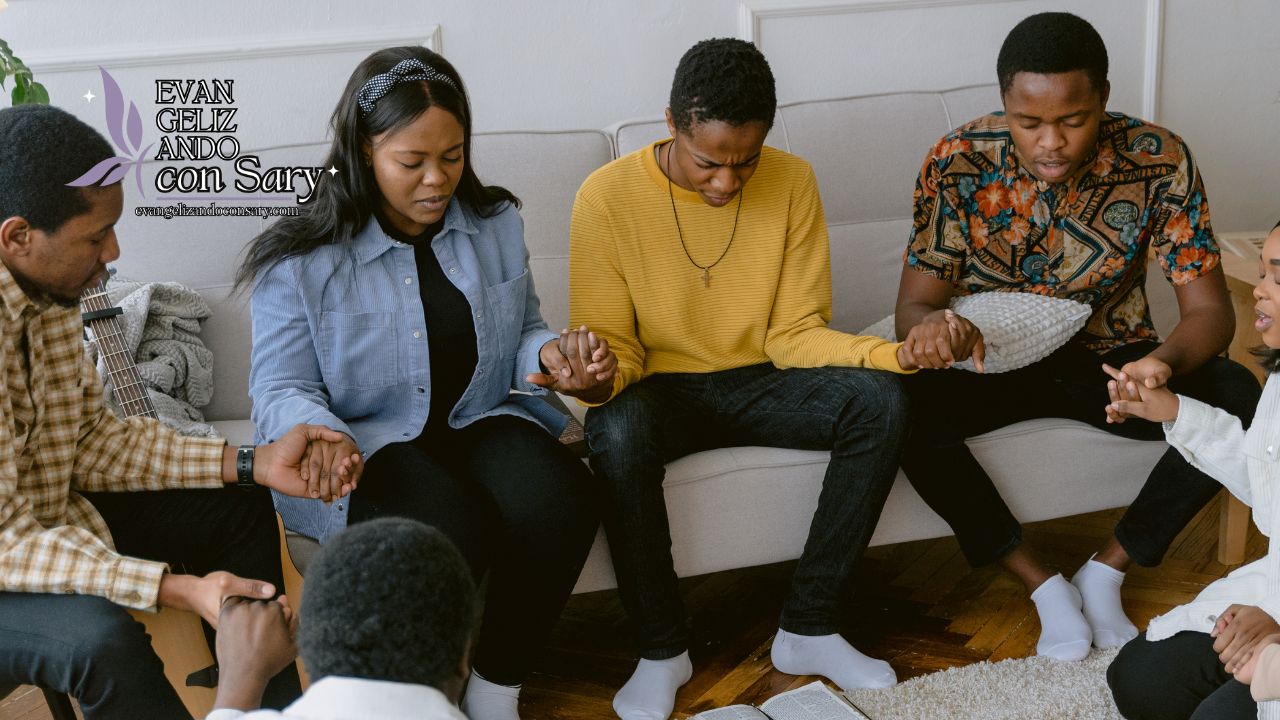Hope is essential to our well-being. It motivates us to face challenges, believe in positive outcomes, and persevere, even in times of despair. However, life often brings unexpected hardships that can erode hope, leaving individuals feeling lost or discouraged. In these moments, faith can act as a powerful source of restoration. Faith is more than a belief; it’s an anchor, providing strength, purpose, and a sense of peace. By restoring hope through faith’s power, we learn to trust in a greater plan, find resilience, and see beyond our immediate struggles.
Faith offers tools for daily renewal, helping people draw on inner strength, seek comfort in supportive communities, and use faith-driven practices to stay hopeful. This article explores how faith serves as a solid foundation for hope, offering practical steps, real-life stories, and inspiration for anyone seeking to rekindle their sense of purpose and optimism.
Why Hope Fades and How Faith Restores It?
Hope can wane for a variety of reasons, from prolonged hardship to sudden loss or feelings of isolation. When faced with ongoing challenges, maintaining hope can feel like a difficult task. However, faith offers a unique way to restore hope, allowing people to look beyond the immediate circumstances and trust in a greater purpose.

Reasons Hope May Fade:
- Ongoing Challenges: Continuous setbacks—whether financial, health-related, or personal—can drain hope over time. Prolonged stress can weaken resilience, making it hard to see a way forward.
- Feeling of Isolation: Social connections are vital for coping, but without companionship, struggles often feel heavier, and hope may diminish. As humans, we naturally seek connection, and lacking it often amplifies despair.
- Loss of Control: Life’s unpredictability—through job loss, illness, or relationship issues—can make people feel powerless, which may weaken hope. This sense of powerlessness makes the future feel uncertain.
How Faith Counters These Challenges:
Faith brings a new perspective, reminding us that while some challenges are beyond human control, we are never truly alone. Faith encourages people to trust in a divine plan, offering a sense of stability even when life feels chaotic. By believing that every experience, even hardship, has a purpose, faith restores hope and provides peace of mind.
- Faith as a Foundation of Hope: Faith serves as a foundation upon which hope is built. Through faith, individuals gain confidence that every situation has a purpose and that they’re never facing their struggles alone. This knowledge becomes a source of strength, providing individuals with the courage and resilience to keep moving forward.
- Faith and the Comfort of Purpose: Faith instills a profound sense of purpose, which fuels hope. It reminds individuals that life is not a series of random events but a meaningful journey where each experience plays a role in their growth and development. Believing in a greater purpose, even during hardship, helps individuals see beyond the pain, finding the strength to continue. Faith allows people to view their challenges not as barriers but as stepping stones, ultimately guiding them toward a hopeful future.
- Hope in Faith’s Consistency: In a world filled with change, faith provides a consistent foundation. Unlike the unpredictable nature of life, faith remains a steady source of strength, allowing people to lean on something unchanging. This consistency reassures individuals that no matter what they face, their faith will support them. By building their hope on this foundation, they can navigate life’s uncertainties with confidence, assured that they are not alone.
Practical Steps for Restoring Hope Through Faith
To restore hope, it’s essential to actively engage in faith-driven practices that foster a connection with one’s beliefs. These practices offer a sense of renewal, clarity, and peace. Below are practical steps for incorporating faith into daily life to restore hope.

1. Daily Faith Practices
Regular engagement with faith, whether through prayer, meditation, or reading scripture, can provide a much-needed sense of grounding. By starting each day with devotion, individuals remind themselves of their beliefs and God’s promises, creating a hopeful outlook. A morning prayer or meditation session helps individuals set a positive tone for the day, focusing their minds on their faith rather than life’s uncertainties.
- Morning Reflections: Spend a few minutes each morning in reflection or prayer, setting an intention for the day and reaffirming trust in God’s plan.
- Evening Gratitude Journaling: Write down things you’re thankful for each evening. Focusing on gratitude reinforces hope by highlighting God’s blessings in your life, big or small.
2. Reflecting on Faithful Promises
Many faith traditions emphasize divine promises of guidance, protection, and love. Reflecting on these promises can provide strength during difficult times. When facing hardship, revisiting these promises can remind individuals of the support available to them. Whether through scripture or personal affirmations, this practice brings comfort and reassurance, reinforcing hope in times of need.
3. Joining Faith-Based Communities
Faith-based communities play a significant role in restoring hope by offering a network of support. Participating in a faith community, whether through attending church services, joining a study group, or simply engaging with like-minded individuals, helps people feel less alone. These communities provide emotional support, encouragement, and practical help, all of which contribute to restoring hope.
- Community Worship: Attending weekly services reinforces shared beliefs and strengthens faith.
- Support Groups: Many communities offer groups specifically focused on offering support during times of loss or difficulty. Engaging with such groups helps individuals process their experiences in a hopeful and faith-centered environment.
4. Serving Others as an Expression of Faith
Serving others can be an uplifting experience, fostering hope and purpose. Helping others shifts the focus from personal struggles to collective well-being, reminding individuals of the positive impact they can make. Faith-based service, such as volunteering in the community, participating in charity events, or simply offering support to a friend, enhances a sense of purpose, reinforcing one’s faith and hope.
Stories of Restoring Hope Through Faith’s Power
Real-life stories demonstrate how faith can transform despair into hope. These stories serve as powerful reminders of the impact that faith can have on individuals’ lives, especially in times of need. Whether through personal transformation or community support, these examples showcase how restoring hope through faith’s power can make a profound difference.

Personal Story of Renewal: Consider an individual who faced immense financial hardship after losing their job. With bills piling up and no immediate solution in sight, they turned to their faith. By dedicating time each day to prayer and reflection, they found clarity, eventually discovering new job opportunities they hadn’t considered before. Faith didn’t remove their challenges, but it gave them the strength to face them with a hopeful outlook.
Community Support in Times of Crisis: In a small community affected by economic downturn, a local church group united to support struggling families. Through donations, prayers, and volunteer efforts, the group was able to restore hope for many in the community. The faith-driven initiative reminded individuals that they were not alone, reinforcing the power of collective hope.
Faith in Community and Shared Belief
Faith-based communities offer a supportive environment where hope can be cultivated and sustained. In times of personal struggle, these communities become invaluable, providing encouragement and reinforcing shared values. Through group worship, community service, and collective prayer, faith communities foster hope by creating a sense of belonging.

Finding Strength in Shared Beliefs
Being part of a community with shared beliefs offers comfort, especially during tough times. These communities create a sense of unity and provide a space where individuals can openly express their faith. Shared beliefs offer reassurance and stability, reminding individuals that they are part of something greater than themselves. In a faith-based community, people find strength, hope, and support from others who understand and share their journey.
Acts of Hope through Faith-Based Communities
Faith-based communities often engage in charitable acts that bring hope to others. From organizing food drives to offering counseling services, these communities are a beacon of hope for those in need. By witnessing and participating in these acts of service, individuals are reminded of the positive impact of faith, encouraging them to keep hope alive even in challenging times.
Faith’s Role in Overcoming Doubt and Fear
Doubt and fear can obstruct hope, particularly when individuals face difficult circumstances. Faith offers tools to overcome these feelings by encouraging trust in a greater plan. By focusing on their faith, individuals can conquer doubts and approach life with confidence.
Faith Over Fear: Trusting in the Journey
Fear often arises from uncertainty, making it difficult to stay hopeful. Faith helps people overcome these fears by encouraging them to trust in God’s plan. By letting go of control and trusting the journey, individuals can release their fears and embrace hope. Faith teaches us that, while we may not have all the answers, we are guided and protected along the way.
Finding Assurance in Faith During Doubt
During times of doubt, faith offers assurance. Rather than focusing on what’s uncertain, individuals are encouraged to trust that God is at work, even in unseen ways. This perspective allows people to find peace, empowering them to hold onto hope even when answers are unclear.
Conclusion:
Faith is a transformative force that can restore hope, guiding individuals through life’s challenges with resilience and optimism. Restoring hope through faith’s power requires a commitment to spiritual practices, engagement with supportive communities, and an openness to trust in a greater purpose. By embracing these aspects of faith, individuals find renewed strength and a hopeful outlook, reminding them that, no matter the hardship, they are never alone. Faith encourages us to believe in brighter days ahead, to trust in the journey, and to face each challenge with courage and hope.


